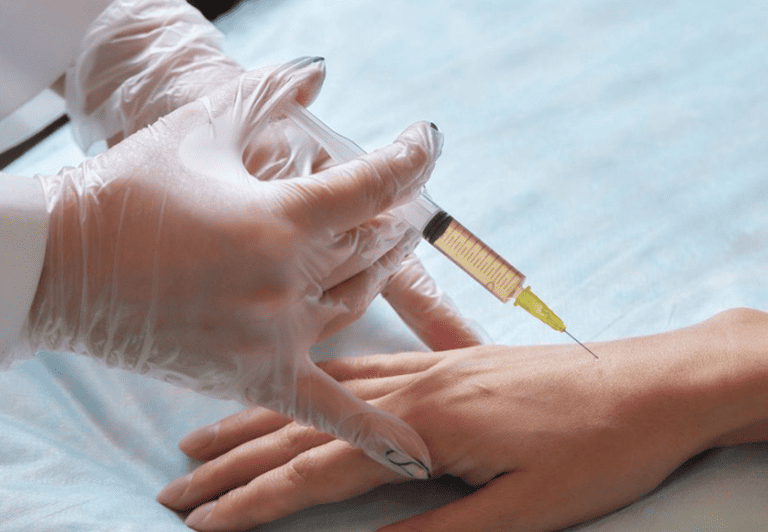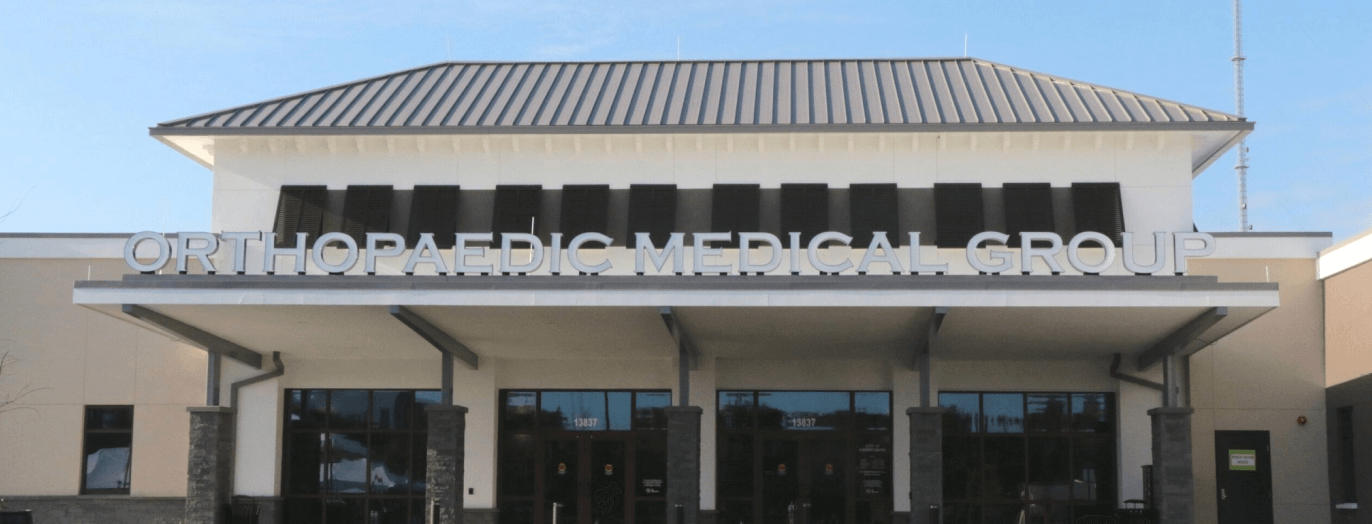
Platelet-Rich Plasma (PRP) therapy has quickly become one of the most talked-about treatments in sports medicine and orthopedics. Growing research shows that PRP may offer real benefits for stubborn tendon injuries, helping reduce pain, speed up recovery, and improve long-term function compared to traditional options. PRP and other regenerative therapies have gained wider acceptance thanks to its safety and evidence-based results. In this article, we’ll break down how PRP injections work and highlight the latest research patients can trust.
Orthopaedic Medical Group of Tampa Bay offers PRP injections and other regenerative medicine treatments near you. Schedule a consultation today!
What is PRP Therapy?
PRP therapy uses a patient’s own blood to promote healing. A small sample of blood is drawn and processed in a centrifuge to separate platelets and growth factors from red blood cells. This concentrated platelet-rich plasma is then injected into the injured tendon under ultrasound guidance. The growth factors are believed to stimulate tissue repair, reduce inflammation, and accelerate recovery.
Because PRP comes from the patient’s own blood, the risk of allergic reaction or rejection is minimal. This makes it a natural and safe alternative to steroid injections or long-term pain medications.
Research on PRP for Tendon Injuries
Over the past decade, researchers have studied PRP in a wide range of tendon injuries. Here’s what the latest evidence reveals:
1. Tennis Elbow (Lateral Epicondylitis)
Several randomized controlled trials have shown that PRP can provide significant pain relief and improved function compared to corticosteroid injections or placebo. While steroids may offer faster short-term relief, PRP appears to offer more sustained benefits over 6 to 12 months.
2. Achilles Tendinopathy
Achilles injuries are notoriously slow to heal. Recent studies suggest PRP injections combined with eccentric loading exercises may improve pain and function. While not every trial has shown dramatic results, many patients report faster recovery and reduced risk of chronic symptoms.
3. Rotator Cuff Tendinopathy
Rotator cuff injuries often lead to prolonged shoulder pain and weakness. Meta-analyses in 2024 and 2025 indicate PRP can enhance outcomes when used alongside physical therapy. Patients receiving PRP showed better tendon healing rates and less pain at follow-up compared to standard conservative care.
4. Patellar Tendinopathy (Jumper’s Knee)
Athletes with patellar tendon injuries have also seen promising results. PRP appears to reduce pain and help restore performance, making it a popular option among high-level competitors seeking alternatives to surgery.
Key Takeaways from Current Evidence
- PRP works best for chronic tendon injuries that have not responded to rest or physical therapy.
- Results may take several weeks to months to fully appear, but benefits are often longer-lasting than steroid injections.
- Combining PRP with structured rehabilitation programs provides the most effective outcomes.
- Not every patient experiences dramatic improvement, but success rates are high enough that PRP is now widely used in sports medicine and orthopedics.
Is PRP Right for You?
If you’ve been struggling with a stubborn tendon injury, PRP therapy may be a safe and effective solution. It is minimally invasive, uses your own body’s healing potential, and has growing scientific support across multiple types of tendon injuries.
Always consult with an experienced orthopedic or sports medicine specialist to determine whether PRP is appropriate for your condition. Personalized evaluation, proper imaging, and a tailored rehab plan will maximize your chances of success.
Read more > What Kind of Injuries Are PRP Injections Good For?
Schedule a Consultation For PRP Therapy With Orthopaedic Medical Group of Tampa Bay, the Trusted Provider In the Area
Between preventing sports injuries, treating chronic tendon conditions, and seeking pain relief and expedited healing after orthopaedic surgery, PRP therapy has been proven countless times to provide effective results. Schedule a consultation appointment with Orthopaedic Medical Group of Tampa Bay for regenerative medicine near you. Call (813) 684-BONE (2663) today.




